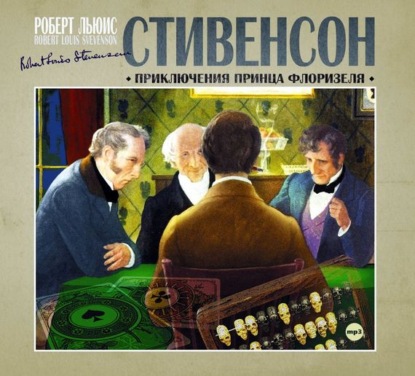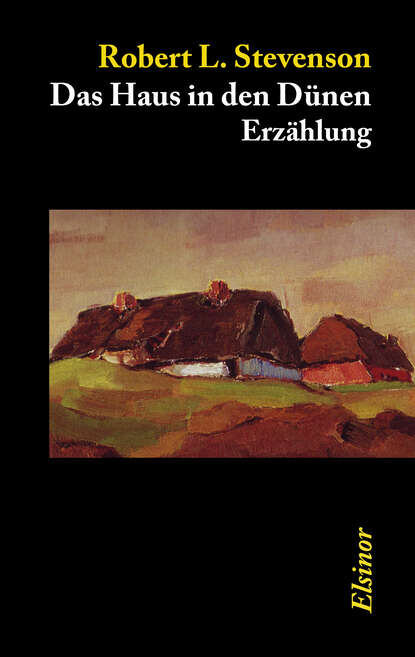 Полная версия
Полная версия- Рейтинг Литрес:5
Полная версия:
Роберт Льюис Стивенсон The Waif Woman
- + Увеличить шрифт
- - Уменьшить шрифт

Robert Louis Stevenson
The Waif Woman
This unpublished story, preserved among Mrs. Stevenson’s papers, is mentioned by Mr. Balfour in his life of Stevenson. Writing of the fables which Stevenson began before he had left England and “attacked again, and from time to time added to their number” in 1893, Mr. Balfour says: “The reference to Odin [Fable XVII] perhaps is due to his reading of the Sagas, which led him to attempt a tale in the same style, called ‘The Waif Woman.’”
THE WAIF WOMAN
A CUE – FROM A SAGA
This is a tale of Iceland, the isle of stories, and of a thing that befell in the year of the coming there of Christianity.
In the spring of that year a ship sailed from the South Isles to traffic, and fell becalmed inside Snowfellness. The winds had speeded her; she was the first comer of the year; and the fishers drew alongside to hear the news of the south, and eager folk put out in boats to see the merchandise and make prices. From the doors of the hall on Frodis Water, the house folk saw the ship becalmed and the boats about her, coming and going; and the merchants from the ship could see the smoke go up and the men and women trooping to their meals in the hall.
The goodman of that house was called Finnward Keelfarer, and his wife Aud the Light-Minded; and they had a son Eyolf, a likely boy, and a daughter Asdis, a slip of a maid. Finnward was well-to-do in his affairs, he kept open house and had good friends. But Aud his wife was not so much considered: her mind was set on trifles, on bright clothing, and the admiration of men, and the envy of women; and it was thought she was not always so circumspect in her bearing as she might have been, but nothing to hurt.
On the evening of the second day men came to the house from sea. They told of the merchandise in the ship, which was well enough and to be had at easy rates, and of a waif woman that sailed in her, no one could tell why, and had chests of clothes beyond comparison, fine coloured stuffs, finely woven, the best that ever came into that island, and gewgaws for a queen. At the hearing of that Aud’s eyes began to glisten. She went early to bed; and the day was not yet red before she was on the beach, had a boat launched, and was pulling to the ship. By the way she looked closely at all boats, but there was no woman in any; and at that she was better pleased, for she had no fear of the men.
When they came to the ship, boats were there already, and the merchants and the shore folk sat and jested and chaffered in the stern. But in the fore part of the ship, the woman sat alone, and looked before her sourly at the sea. They called her Thorgunna. She was as tall as a man and high in flesh, a buxom wife to look at. Her hair was of the dark red, time had not changed it. Her face was dark, the cheeks full, and the brow smooth. Some of the merchants told that she was sixty years of age and others laughed and said she was but forty; but they spoke of her in whispers, for they seemed to think that she was ill to deal with and not more than ordinary canny.
Aud went to where she sat and made her welcome to Iceland. Thorgunna did the honours of the ship. So for a while they carried it on, praising and watching each other, in the way of women. But Aud was a little vessel to contain a great longing, and presently the cry of her heart came out of her.
“The folk say,” says she, “you have the finest women’s things that ever came to Iceland?” and as she spoke her eyes grew big.
“It would be strange if I had not,” quoth Thorgunna. “Queens have no finer.”
So Aud begged that she might see them.
Thorgunna looked on her askance. “Truly,” said she, “the things are for no use but to be shown.” So she fetched a chest and opened it. Here was a cloak of the rare scarlet laid upon with silver, beautiful beyond belief; hard by was a silver brooch of basket work that was wrought as fine as any shell and was as broad as the face of the full moon; and Aud saw the clothes lying folded in the chest, of all the colours of the day, and fire, and precious gems; and her heart burned with envy. So, because she had so huge a mind to buy, she began to make light of the merchandise.
“They are good enough things,” says she, “though I have better in my chest at home. It is a good enough cloak, and I am in need of a new cloak.” At that she fingered the scarlet, and the touch of the fine stuff went to her mind like singing. “Come,” says she, “if it were only for your civility in showing it, what will you have for your cloak?”
“Woman,” said Thorgunna, “I am no merchant.” And she closed the chest and locked it, like one angry.
Then Aud fell to protesting and caressing her. That was Aud’s practice; for she thought if she hugged and kissed a person none could say her nay. Next she went to flattery, said she knew the things were too noble for the like of her – they were made for a stately, beautiful woman like Thorgunna; and at that she kissed her again, and Thorgunna seemed a little pleased. And now Aud pled poverty and begged for the cloak in a gift; and now she vaunted the wealth of her goodman and offered ounces and ounces of fine silver, the price of three men’s lives. Thorgunna smiled, but it was a grim smile, and still she shook her head. At last Aud wrought herself into extremity and wept.
“I would give my soul for it,” she cried.
“Fool!” said Thorgunna. “But there have been fools before you!” And a little after, she said this: “Let us be done with beseeching. The things are mine. I was a fool to show you them; but where is their use, unless we show them? Mine they are and mine they shall be till I die. I have paid for them dear enough,” said she.
Aud saw it was of no avail; so she dried her tears, and asked Thorgunna about her voyage, and made believe to listen while she plotted in her little mind. “Thorgunna,” she asked presently, “do you count kin with any folk in Iceland?”
“I count kin with none,” replied Thorgunna. “My kin is of the greatest, but I have not been always lucky, so I say the less.”
“So that you have no house to pass the time in till the ship return?” cries Aud. “Dear Thorgunna, you must come and live with us. My goodman is rich, his hand and his house are open, and I will cherish you like a daughter.”
At that Thorgunna smiled on the one side; but her soul laughed within her at the woman’s shallowness. “I will pay her for that word daughter,” she thought, and she smiled again.
“I will live with you gladly,” says she, “for your house has a good name, and I have seen the smoke of your kitchen from the ship. But one thing you shall understand. I make no presents, I give nothing where I go – not a rag and not an ounce. Where I stay, I work for my upkeep; and as I am strong as a man and hardy as an ox, they that have had the keeping of me were the better pleased.”
It was a hard job for Aud to keep her countenance, for she was like to have wept. And yet she felt it would be unseemly to eat her invitation; and like a shallow woman and one that had always led her husband by the nose, she told herself she would find some means to cajole Thorgunna and come by her purpose after all. So she put a good face on the thing, had Thorgunna into the boat, her and her two great chests, and brought her home with her to the hall by the beach.
All the way in she made much of the wife; and when they were arrived gave her a locked bed-place in the hall, where was a bed, a table, and a stool, and space for the two chests.
“This shall be yours while you stay here,” said Aud. And she attended on her guest.
Now Thorgunna opened the second chest and took out her bedding – sheets of English linen, the like of it never seen, a cover of quilted silk, and curtains of purple wrought with silver. At the sight of these Aud was like one distracted, greed blinded her mind; the cry rose strong in her throat, it must out.
“What will you sell your bedding for?” she cried, and her cheeks were hot.
Thorgunna looked upon her with a dusky countenance. “Truly you are a courteous hostess,” said she, “but I will not sleep on straw for your amusement.”
At that Aud’s two ears grew hot as her cheeks; and she took Thorgunna at her word; and left her from that time in peace.
The woman was as good as her spoken word. Inside the house and out she wrought like three, and all that she put her hand to was well done. When she milked, the cows yielded beyond custom; when she made hay, it was always dry weather; when she took her turn at the cooking, the folk licked their spoons. Her manners when she pleased were outside imitation, like one that had sat with kings in their high buildings. It seemed she was pious too, and the day never passed but she was in the church there praying. The rest was not so well. She was of few words, and never one about her kin and fortunes. Gloom sat on her brow, and she was ill to cross. Behind her back they gave her the name of the Waif Woman or the Wind Wife; to her face it must always be Thorgunna. And if any of the young men called her mother, she would speak no more that day, but sit apart in the hall and mutter with her lips.
“This is a queer piece of goods that we have gotten,” says Finnward Keelfarer, “I wish we get no harm by her! But the good wife’s pleasure must be done,” said he, which was his common word.
When she was at work, Thorgunna wore the rudest of plain clothes, though ever clean as a cat; but at night in the hall she was more dainty, for she loved to be admired. No doubt she made herself look well, and many thought she was a comely woman still, and to those she was always favourable and full of pleasant speech. But the more that some pleased her, it was thought by good judges that they pleased Aud the less.
When midsummer was past, a company of young men upon a journey came to the house by Frodis Water. That was always a great day for Aud, when there were gallants at table; and what made this day the greater, Alf of the Fells was in the company, and she thought Alf fancied her. So be sure Aud wore her best. But when Thorgunna came from the bed-place, she was arrayed like any queen and the broad brooch was in her bosom. All night in the hall these women strove with each other; and the little maid, Asdis, looked on, and was ashamed and knew not why. But Thorgunna pleased beyond all; she told of strange things that had befallen in the world; when she pleased she had the cue to laughter; she sang, and her voice was full and her songs new in that island; and whenever she turned, the eyes shone in her face and the brooch glittered at her bosom. So that the young men forgot the word of the merchants as to the woman’s age, and their looks followed her all night.
Aud was sick with envy. Sleep fled her; her husband slept, but she sat upright beside him in the bed, and gnawed her fingers. Now she began to hate Thorgunna, and the glittering of the great brooch stood before her in the dark. “Sure,” she thought, “it must be the glamour of that brooch! She is not so fair as I; she is as old as the dead in the hillside; and as for her wit and her songs, it is little I think of them!” Up she got at that, took a light from the embers, and came to her guest’s bed-place. The door was locked, but Aud had a master-key and could go in. Inside, the chests were open, and in the top of one the light of her taper shone upon the glittering of the brooch. As a dog snatches food she snatched it, and turned to the bed. Thorgunna lay on her side; it was to be thought she slept, but she talked the while to herself, and her lips moved. It seemed her years returned to her in slumber, for her face was grey and her brow knotted; and the open eyes of her stared in the eyes of Aud. The heart of the foolish woman died in her bosom; but her greed was the stronger, and she fled with that which she had stolen.
When she was back in bed, the word of Thorgunna came to her mind, that these things were for no use but to be shown. Here she had the brooch and the shame of it, and might not wear it. So all night she quaked with the fear of discovery, and wept tears of rage that she should have sinned in vain. Day came, and Aud must rise; but she went about the house like a crazy woman. She saw the eyes of Asdis rest on her strangely, and at that she beat the maid. She scolded the house folk, and, by her way of it, nothing was done aright. First she was loving to her husband and made much of him, thinking to be on his good side when trouble came. Then she took a better way, picked a feud with him, and railed on the poor man till his ears rang, so that he might be in the wrong beforehand. The brooch she hid without, in the side of a hayrick. All this while Thorgunna lay in the bed-place, which was not her way, for by custom she was early astir. At last she came forth, and there was that in her face that made all the house look one at the other and the heart of Aud to be straitened. Never a word the guest spoke, not a bite she swallowed, and they saw the strong shudderings take and shake her in her place. Yet a little, and still without speech, back she went into her bad-place, and the door was shut.
“That is a sick wife,” said Finnward, “Her weird has come on her.”
And at that the heart of Aud was lifted up with hope.
All day Thorgunna lay on her bed, and the next day sent for Finnward.
“Finnward Keelfarer,” said she, “my trouble is come upon me, and I am at the end of my days.”
He made the customary talk.
“I have had my good things; now my hour is come; and let suffice,” quoth she. “I did not send for you to hear your prating.”
Finnward knew not what to answer, for he saw her soul was dark.
“I sent for you on needful matters,” she began again. “I die here – I! – in this black house, in a bleak island, far from all decency and proper ways of man; and now my treasure must be left. Small pleasure have I had of it, and leave it with the less!” cried she.
“Good woman, as the saying is, needs must,” says Finnward, for he was nettled with that speech.
“For that I called you,” quoth Thorgunna. “In these two chests are much wealth and things greatly to be desired. I wish my body to be laid in Skalaholt in the new church, where I trust to hear the mass-priests singing over my head so long as time endures. To that church I will you to give what is sufficient, leaving your conscience judge of it. My scarlet cloak with the silver, I will to that poor fool your wife. She longed for it so bitterly, I may not even now deny her. Give her the brooch as well. I warn you of her; I was such as she, only wiser; I warn you, the ground she stands upon is water, and whoso trusts her leans on rottenness. I hate her and I pity her. When she comes to lie where I lie – ” There she broke off. “The rest of my goods I leave to your black-eyed maid, young Asdis, for her slim body and clean mind. Only the things of my bed, you shall see burned.”
“It is well,” said Finnward.
“It may be well,” quoth she, “if you obey. My life has been a wonder to all and a fear to many. While I lived none thwarted me and prospered. See to it that none thwart me after I am dead. It stands upon your safety.”
“It stands upon my honour,” quoth Finnward, “and I have the name of an honourable man.”
“You have the name of a weak one,” says Thorgunna. “Look to it, look to it, Finnward. Your house shall rue it else.”
“The rooftree of my house is my word,” said Finnward.
“And that is a true saying,” says the woman. “See to it, then. The speech of Thorgunna is ended.”
With that she turned her face against the wall and Finnward left her.
The same night, in the small hours of the clock, Thorgunna passed. It was a wild night for summer, and the wind sang about the eaves and clouds covered the moon, when the dark woman wended. From that day to this no man has learned her story or her people’s name; but be sure the one was stormy and the other great. She had come to that isle, a waif woman, on a ship; thence she flitted, and no more remained of her but her heavy chests and her big body.
In the morning the house women streaked and dressed the corpse. Then came Finnward, and carried the sheets and curtains from the house, and caused build a fire upon the sands. But Aud had an eye on her man’s doings.
“And what is this that you are at?” said she.
So he told her.
“Burn the good sheets!” she cried. “And where would I be with my two hands? No, troth,” said Aud, “not so long as your wife is above ground!”
“Good wife,” said Finnward, “this is beyond your province. Here is my word pledged and the woman dead I pledged it to. So much the more am I bound. Let me be doing as I must, goodwife.”
“Tilly-valley!” says she, “and a fiddlestick’s end, goodman! You may know well about fishing and be good at shearing sheep for what I know; but you are little of a judge of damask sheets. And the best word I can say is just this,” she says, laying hold of one end of the goods, “that if ye are made up to burn the plenishing, you must burn your wife along with it.”
“I trust it will not go so hard,” says Finnward, “and I beg you not to speak so loud and let the house folk hear you.”
“Let them speak low that are ashamed!” cries Aud. “I speak only in reason.”
“You are to consider that the woman died in my house,” says Finnward, “and this was her last behest. In truth, goodwife, if I were to fail, it is a thing that would stick long in my throat, and would give us an ill name with the neighbours.”
“And you are to consider,” says she, “that I am your true wife and worth all the witches ever burnt, and loving her old husband” – here she put her arms about his neck. “And you are to consider that what you wish to do is to destroy fine stuff, such as we have no means of replacing; and that she bade you do it singly to spite me, for I sought to buy this bedding from her while she was alive at her own price; and that she hated me because I was young and handsome.”
“That is a true word that she hated you, for she said so herself before she wended,” says Finnward.
“So that here is an old faggot that hated me, and she dead as a bucket,” says Aud; “and here is a young wife that loves you dear, and is alive forby” – and at that she kissed him – “and the point is, which are you to do the will of?”
The man’s weakness caught him hard, and he faltered. “I fear some hurt will come of it,” said he.
There she cut in, and bade the lads tread out the fire, and the lasses roll the bed-stuff up and carry it within.
“My dear,” says he, “my honour – this is against my honour.”
But she took his arm under hers, and caressed his hand, and kissed his knuckles, and led him down the bay. “Bubble-bubble-bubble!” says she, imitating him like a baby, though she was none so young. “Bubble-bubble, and a silly old man! We must bury the troll wife, and here is trouble enough, and a vengeance! Horses will sweat for it before she comes to Skalaholt; ’tis my belief she was a man in a woman’s habit. And so now, have done, good man, and let us get her waked and buried, which is more than she deserves, or her old duds are like to pay for. And when that is ended, we can consult upon the rest.”
So Finnward was but too well pleased to put it off.
The next day they set forth early for Skalaholt across the heaths. It was heavy weather, and grey overhead; the horses sweated and neighed, and the men went silent, for it was nowhere in their minds that the dead wife was canny. Only Aud talked by the way, like a silly sea-gull piping on a cliff, and the rest held their peace. The sun went down before they were across Whitewater; and the black night fell on them this side of Netherness. At Netherness they beat upon the door. The goodman was not abed nor any of his folk, but sat in the hall talking; and to them Finnward made clear his business.
“I will never deny you a roof,” said the goodman of Netherness. “But I have no food ready, and if you cannot be doing without meat, you must e’en fare farther.”
They laid the body in a shed, made fast their horses, and came into the house, and the door was closed again. So there they sat about the lights, and there was little said, for they were none so well pleased with their reception. Presently, in the place where the food was kept, began a clattering of dishes; and it fell to a bondman of the house to go and see what made the clatter. He was no sooner gone than he was back again; and told it was a big, buxom woman, high in flesh and naked as she was born, setting meats upon a dresser. Finnward grew pale as the dawn; he got to his feet, and the rest rose with him, and all the party of the funeral came to the buttery-door. And the dead Thorgunna took no heed of their coming, but went on setting forth meats, and seemed to talk with herself as she did so; and she was naked to the buff.
Great fear fell upon them; the marrow of their back grew cold. Not one word they spoke, neither good nor bad; but back into the hall, and down upon their bended knees, and to their prayers.
“Now, in the name of God, what ails you?” cried the goodman of Netherness.
And when they had told him, shame fell upon him for his churlishness.
“The dead wife reproves me,” said the honest man.
And he blessed himself and his house, and caused spread the tables, and they all ate of the meats that the dead wife laid out.
This was the first walking of Thorgunna, and it is thought by good judges it would have been the last as well, if men had been more wise.
The next day they came to Skalaholt, and there was the body buried, and the next after they set out for home. Finnward’s heart was heavy, and his mind divided. He feared the dead wife and the living; he feared dishonour and he feared dispeace; and his will was like a sea-gull in the wind. Now he cleared his throat and made as if to speak; and at that Aud cocked her eye and looked at the goodman mocking, and his voice died unborn. At the last, shame gave him courage.
“Aud,” said he, “yon was a most uncanny thing at Netherness.”
“No doubt,” said Aud.
“I have never had it in my mind,” said he, “that yon woman was the thing she should be.”
“I dare say not,” said Aud. “I never thought so either.”
“It stands beyond question she was more than canny,” says Finnward, shaking his head. “No manner of doubt but what she was ancient of mind.”
“She was getting pretty old in body, too,” says Aud.
“Wife,” says he, “it comes in upon me strongly this is no kind of woman to disobey; above all, being dead and her walking. I think, wife, we must even do as she commanded.”
“Now what is ever your word?” says she, riding up close and setting her hand upon his shoulder. “‘The goodwife’s pleasure must be done’; is not that my Finnward?”
“The good God knows I grudge you nothing,” cried Finnward. “But my blood runs cold upon this business. Worse will come of it!” he cried, “worse will flow from it!”
“What is this todo?” cries Aud. “Here is an old brimstone hag that should have been stoned with stones, and hated me besides. Vainly she tried to frighten me when she was living; shall she frighten me now when she is dead and rotten? I trow not. Think shame to your beard, goodman! Are these a man’s shoes I see you shaking in, when your wife rides by your bridle-hand, as bold as nails?”
“Ay, ay,” quoth Finnward. “But there goes a byword in the country: Little wit, little fear.”
At this Aud began to be concerned, for he was usually easier to lead. So now she tried the other method on the man.
“Is that your word?” cried she. “I kiss the hands of ye! If I have not wit enough, I can rid you of my company. Wit is it he seeks?” she cried. “The old broomstick that we buried yesterday had wit for you.”
So she rode on ahead and looked not the road that he was on.
Poor Finnward followed on his horse, but the light of the day was gone out, for his wife was like his life to him. He went six miles and was true to his heart; but the seventh was not half through when he rode up to her.
“Is it to be the goodwife’s pleasure?” she asked.
“Aud, you shall have your way,” says he; “God grant there come no ill of it!”
So she made much of him, and his heart was comforted.
When they came to the house, Aud had the two chests to her own bed-place, and gloated all night on what she found. Finnward looked on, and trouble darkened his mind.





